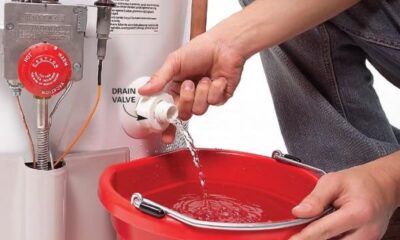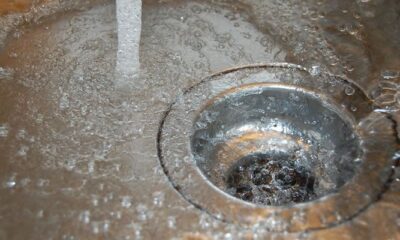At Next Plumbing in Cape Coral, FL, we understand how essential a quiet, well-functioning garbage disposal is to maintaining a clean and efficient kitchen. However, noisy garbage disposals can disrupt your daily routine, signaling underlying issues that need attention. In this article, we’ll walk you through common causes of noisy garbage disposals and provide expert tips on how to fix them.
Common Causes of Noisy Garbage Disposal
Noisy garbage disposals can be a nuisance, but they’re often a sign that something isn’t right. Here are the most common causes of noise:
1. Loose Mounting Screws
Over time, the vibrations from regular use can cause the mounting screws to loosen, leading to a rattling noise.
2. Worn-Out Blades
Blades that are dull or damaged struggle to grind food waste efficiently, creating excessive noise.
3. Clogged or Jammed Disposal
Food scraps or foreign objects can get stuck, causing the disposal to work harder and produce loud grinding sounds.
4. Faulty Motor
A motor that’s on its last legs may make unusual humming or grinding noises as it struggles to operate.
5. Damaged Impeller
The impeller, which helps push food waste through the disposal, can become damaged and lead to noisy operation.
Troubleshooting Noisy Disposals
These are a few steps you can take to reduce or eliminate noise from your garbage disposal:
1. Tighten Mounting Screws
Disconnect the power to the disposal by unplugging it or switching off the circuit breaker. Locate the mounting screws underneath the sink and use a screwdriver to tighten them securely. This simple fix often solves rattling issues caused by loose components.
Professional Tip: If the noise persists after tightening the screws, there might be a deeper issue with the disposal’s installation. A professional plumber can inspect the mounting system to ensure everything is properly aligned and secure.
2. Sharpen or Replace Blades
You can run ice cubes through the disposal to help sharpen the blades. Ice helps knock off any food residue that may have built up on the blades, making them more effective. If the blades are too worn or damaged, consider having them replaced by a professional.
Professional Tip: Attempting to replace the blades yourself can be risky. Incorrect installation can lead to further damage or even injury. A professional can safely replace the blades and check for any additional wear and tear inside the unit.
3. Clear Clogs or Jams
Turn off the disposal and use a hex wrench to manually rotate the blades, clearing any blockages. Always remember to disconnect the power before working on the disposal to avoid accidents.
Professional Tip: If you find that the disposal clogs frequently, there could be an underlying issue with your plumbing. A professional plumber can assess whether there’s a larger problem that needs to be addressed, such as a drain line obstruction.
4. Check and Repair the Motor
If the motor is making strange noises, it might be time for a professional inspection. Motors can often be repaired, but in some cases, replacement is more cost-effective. If your disposal is older, a new unit may be more energy-efficient and quieter.
Professional Tip: Motor issues are complex and require technical expertise to diagnose correctly. We recommend leaving motor repairs or replacements to a licensed plumber who can ensure the job is done safely and correctly.
5. Replace Damaged Impeller
A damaged impeller can cause persistent noise. Replacing it requires disassembling the unit, which is best handled by a professional. The impeller plays a crucial role in the disposal’s operation, so it’s essential that the replacement is done correctly.
Professional Tip: Disassembly and reassembly of a garbage disposal can be tricky. If the impeller needs replacement, call a professional to avoid potential damage to the unit or plumbing system.
Preventing Noise Issues
Prevention is key to avoiding noisy garbage disposals. Here’s how you can keep yours running quietly:
Proper Use and Maintenance
Regularly clean the disposal by running cold water and grinding small amounts of food waste at a time. Avoid overloading it with large amounts of food waste at once, as this can strain the motor and blades, leading to noise and inefficiency.
Avoid Putting Certain Items in the Disposal
Hard items like bones, fibrous foods (such as celery or corn husks), and grease can damage your disposal and lead to noise problems. These items can also cause clogs and strain on the motor, reducing the disposal’s lifespan.
Regularly Clean and Check for Issues
Perform routine checks and clean the disposal with ice cubes and citrus peels to keep it in top shape. Citrus peels not only help clean the blades but also leave your kitchen smelling fresh.
When to Call a Professional
While many garbage disposal issues can be fixed at home, some problems require a professional touch. At Next Plumbing, we have the expertise to diagnose and fix garbage disposal issues quickly and efficiently. Don’t hesitate to call us so you can keep your garbage disposal running smoothly for years to come!



